D'var Torah
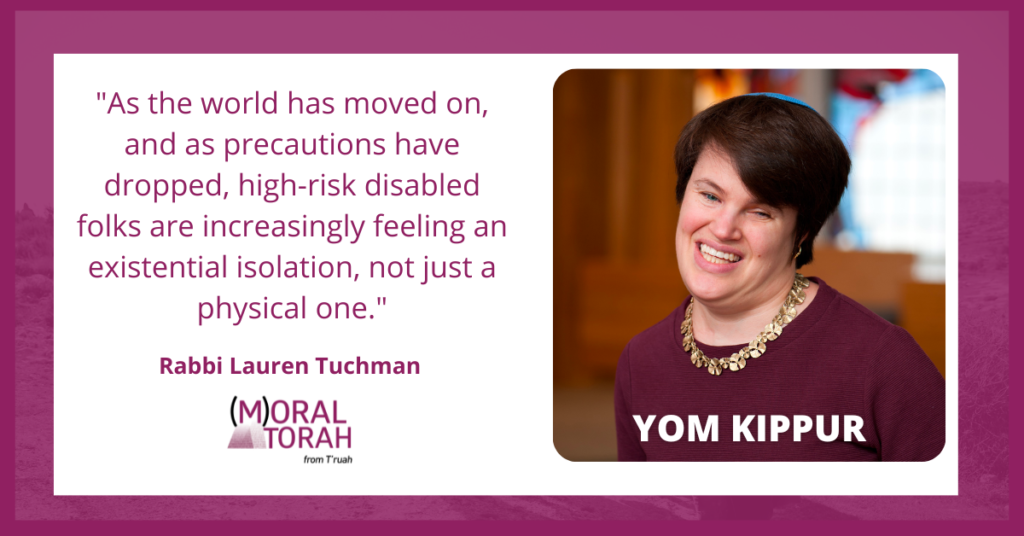
Creating Sacred Communities for the Whole of Israel
As the world has moved on, and as precautions have dropped, high-risk disabled folks are increasingly feeling an existential isolation, not just a physical one.
more
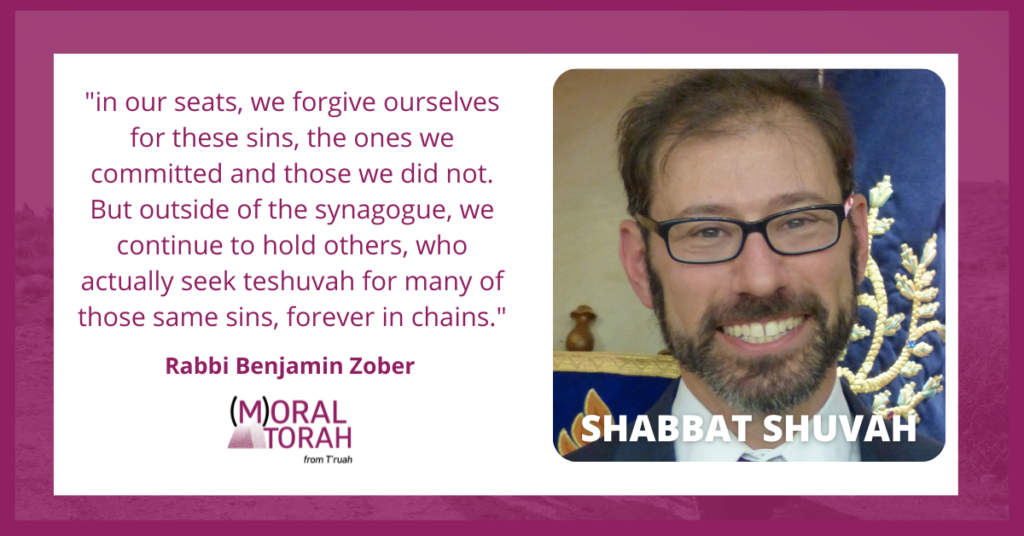
Well-Practiced at Punishment
...In our seats, we forgive ourselves for these sins, the ones we committed and those we did not. But outside of the synagogue, we continue to hold others, who actually seek teshuvah for many of those same sins, forever in chains.
more
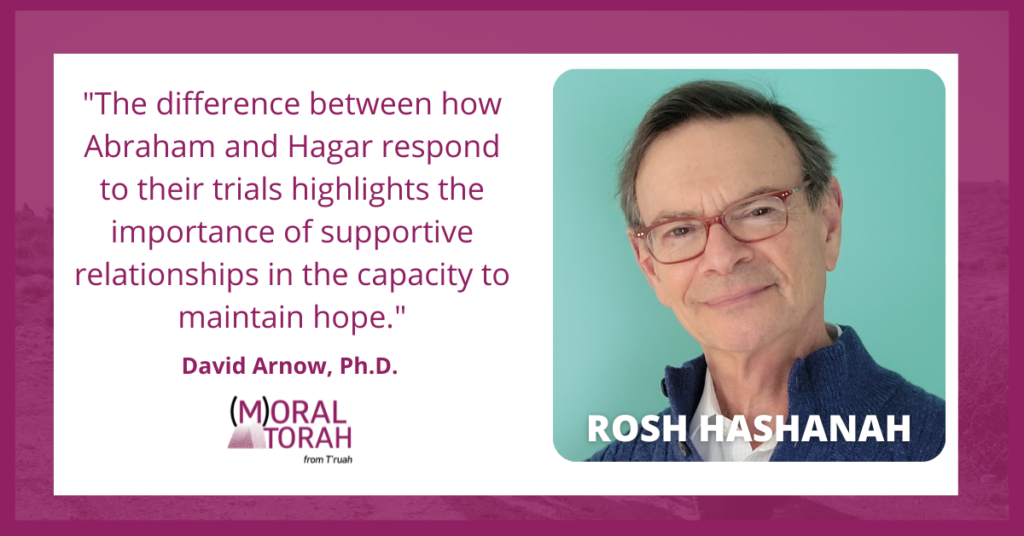
Facing Our Trials with Hope: Abraham and the Akedah
A D’var Torah for Rosh Hashanah by David Arnow, Ph.D. From climate change and the erosion of democratic norms to the resurgence of antisemitism and the fight for human rights, one thing is clear: If despair triumphs over hope, we’ll never overcome the challenges we face. Hope enables us to envision a better future and...
more
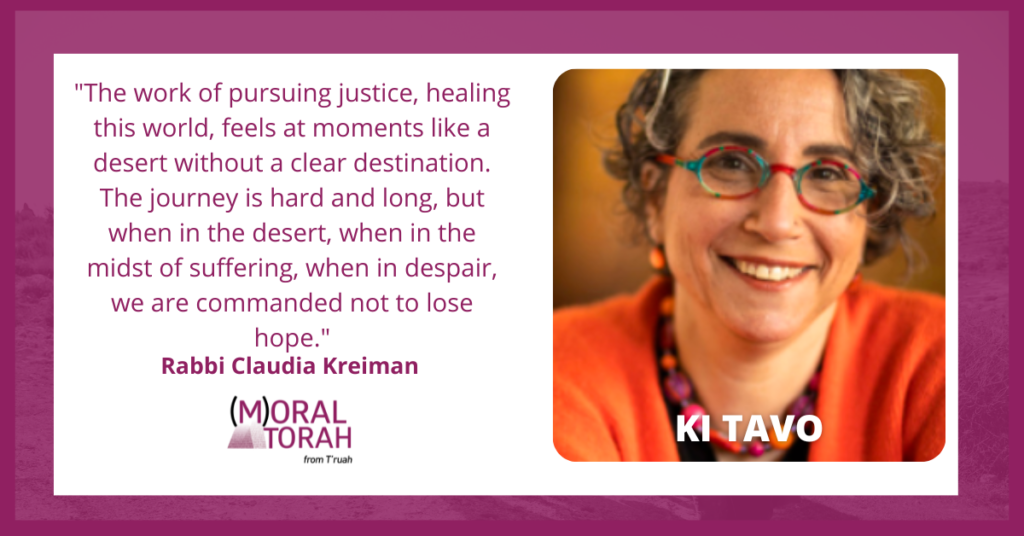
Waiting On Our First Fruits
The work of pursuing justice, healing this world, feels at moments like a desert without a clear destination. The journey is hard and long, but when in the desert, when in the midst of suffering, when in despair, we are commanded not to lose hope.
more
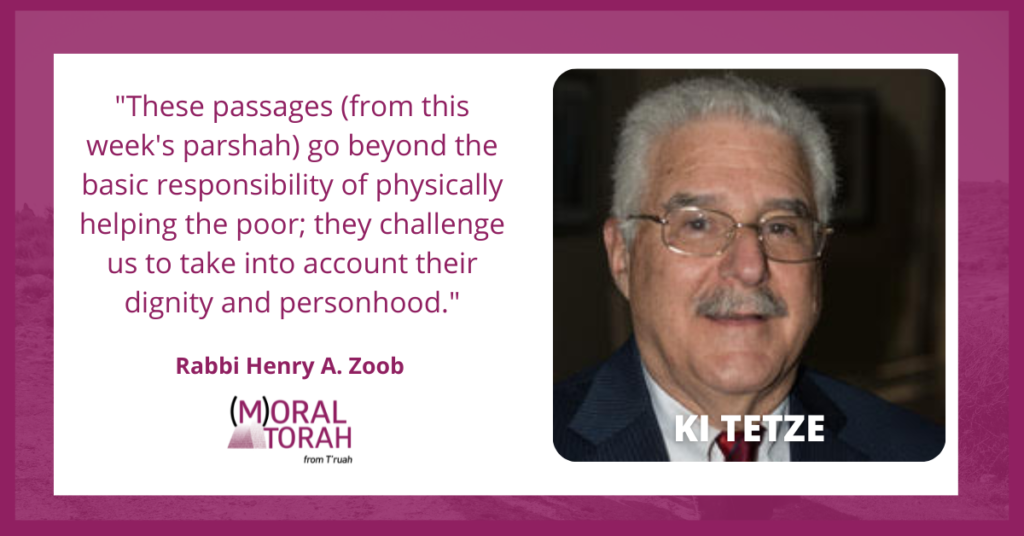
Going Beyond Rectifying Poverty
These passages (from this week's parshah) go beyond the basic responsibility of physically helping the poor; they challenge us to take into account their dignity and personhood.
more
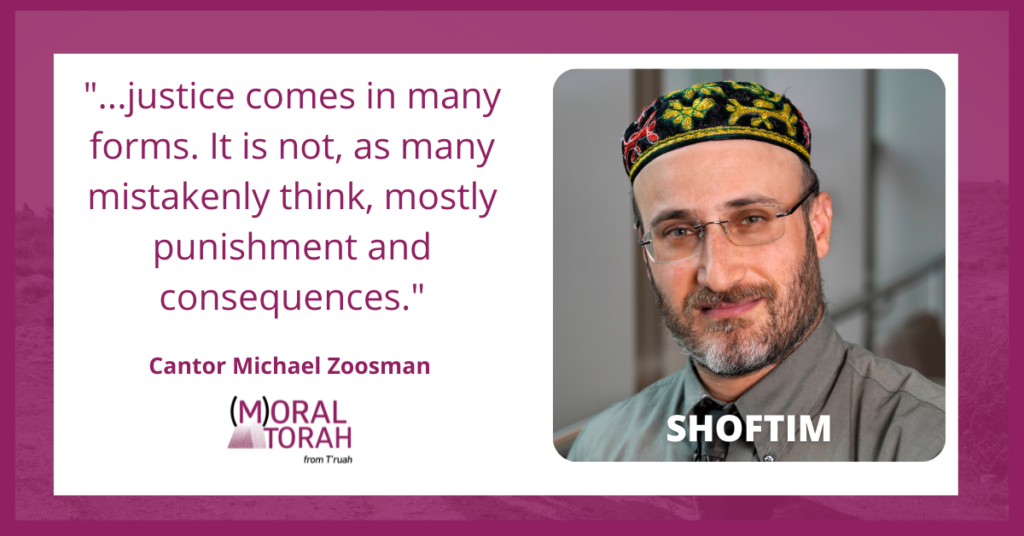
Abolition, Abolition Shall You Pursue!
...justice comes in many forms. It is not, as many mistakenly think, mostly punishment and consequences.
more
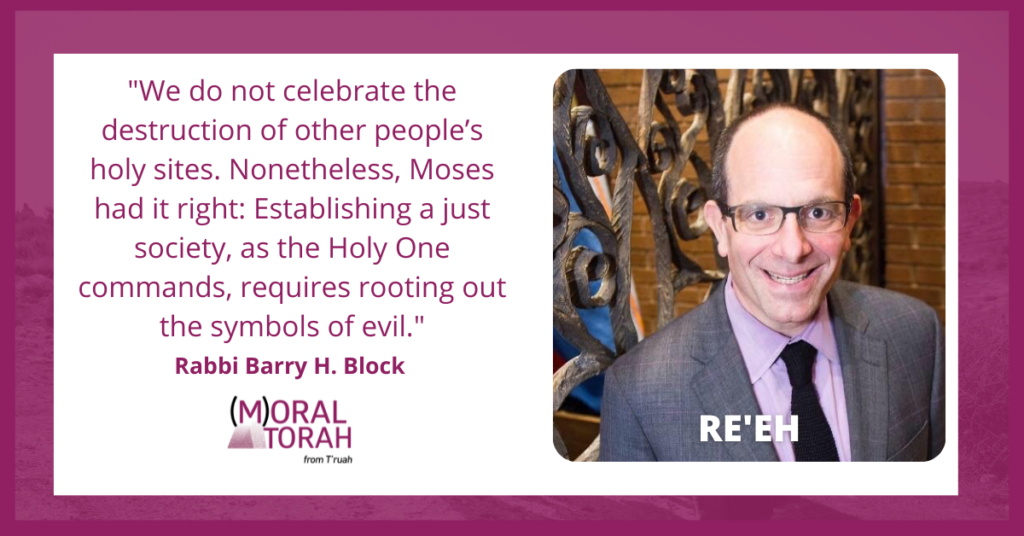
Dangerous Idols in Ancient Israel and Contemporary America
We do not celebrate the destruction of other people’s holy sites. Nonetheless, Moses had it right: Establishing a just society, as the Holy One commands, requires rooting out the symbols of evil.
more
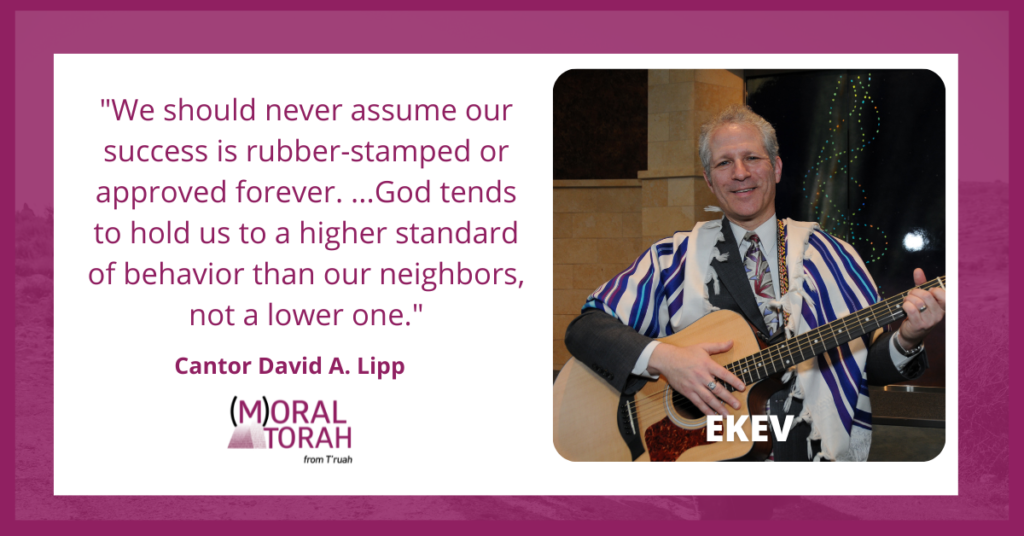
Trampling over the Torah
We should never assume our success is rubber-stamped or approved forever. Our actions can always be re-evaluated, and based on prophetic precedent, God tends to hold us to a higher standard of behavior than our neighbors, not a lower one.
more
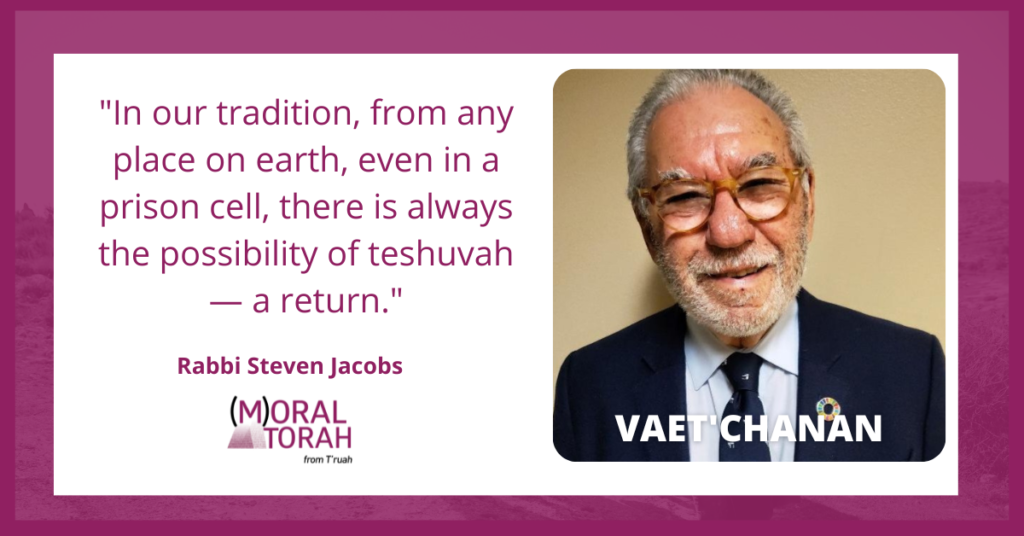
Returning from the Narrow Place
In our tradition, from any place on earth, even in a prison cell, there is always the possibility of teshuvah — a return.
more
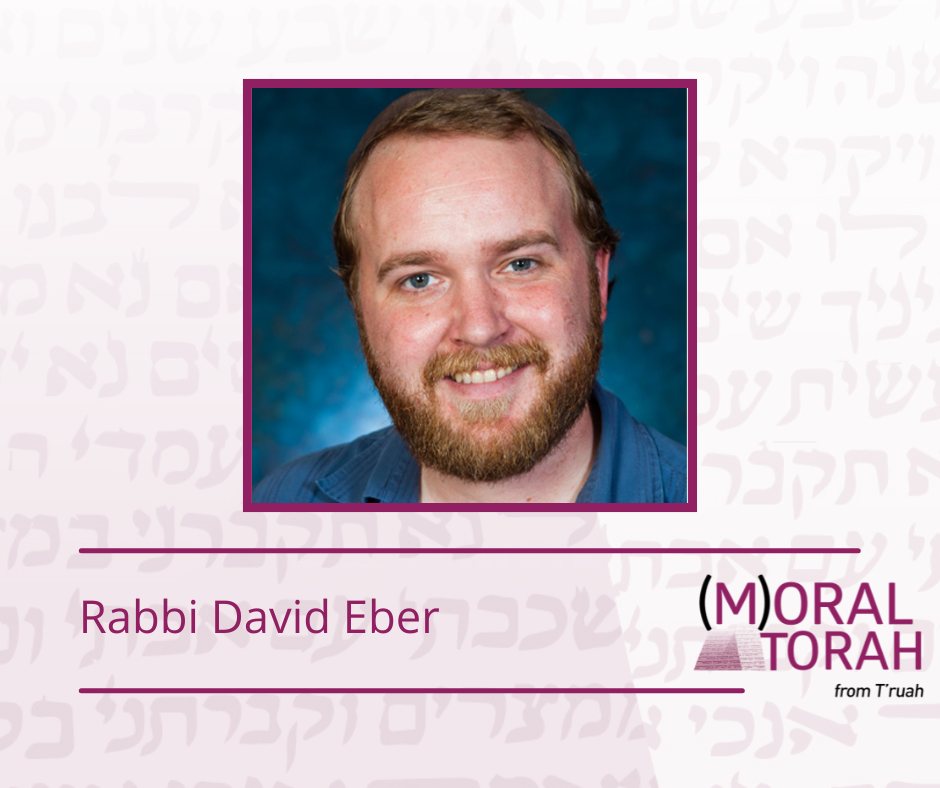
Turning our Backyards into Sanctuary Cities
...the Torah instructs that in the midst of our holiest cities and amongst people who do the work of God, that precisely there — in that place — are the vulnerable to take refuge.
more
